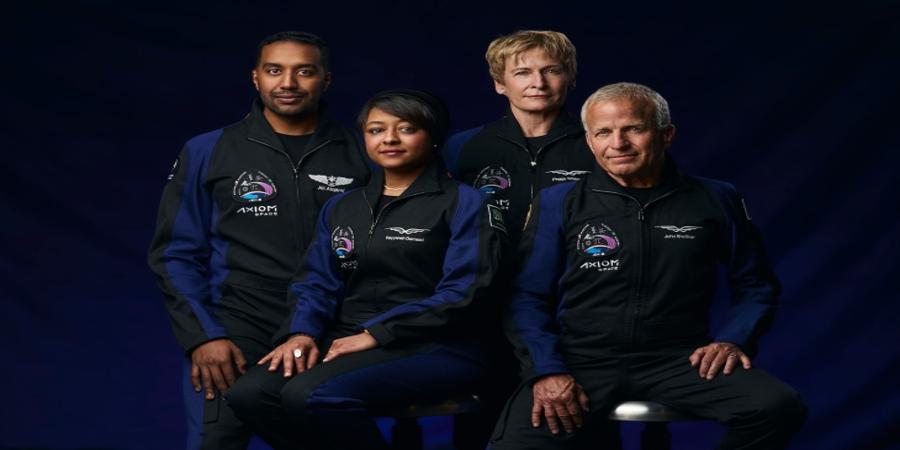Axiom Space’s second private crewed mission to the International Space Station is now scheduled to launch in just ten days, with the four-person crew preparing to conduct more than 20 scientific experiments while in space.
The Ax-2 mission will now launch no earlier than 5:37 p.m. EDT on May 21 from SpaceX’s Launch Complex 39A at NASA’s Kennedy Space Center. The crew will travel to the station onboard a SpaceX Falcon 9 rocket and Crew Dragon capsule, where they’ll remain for a roughly 10-day stint. This will mark the second fully private crew to visit the ISS; the first mission, also operated by Axiom Space, took place in April 2022.
The crew includes Peggy Whitson, the mission commander and Axiom’s director of human spaceflight; John Shoffner, the pilot; Ali Alqarni, mission specialist; and Rayyanah Barnawi, also a mission specialist. Alqarni and Barnawi are both members of Saudi Arabia’s first astronaut class and will be the first people from that country to visit the ISS. Shoffner, an Axiom investor, is the only paying customer on the crew.
The foursome will engage in a ton of scientific research while aboard the station. The more than 20 payloads that will travel with the crew, which span the life sciences, biomedicine, and technology demonstrations, are sponsored by the ISS National Laboratory. Experiments include examining the impact of microgravity on stem cell production, studies on bioengineered human tissue, and a project that will help advance detection of a treatment for cancer on Earth. The crew will also undergo a battery of tests to better understand the impact of spaceflight and microgravity on the body.
Private human spaceflight mission is just one part of Axiom’s plan. The company is also among a growing crowd of players aiming to operate a private space station. Their plan involves attaching modules to the ISS, and later operating these modules as a free-flying station once the ISS is decommissioned in 2030. The first module is scheduled to launch in 2025.
Axiom also announced last month that it signed an agreement to establish a joint venture with one of its investors: Korean pharmaceutical firm Boryung, who contributed $50 million in capital last December. The JV was announced last month.
Source @TechCrunch



